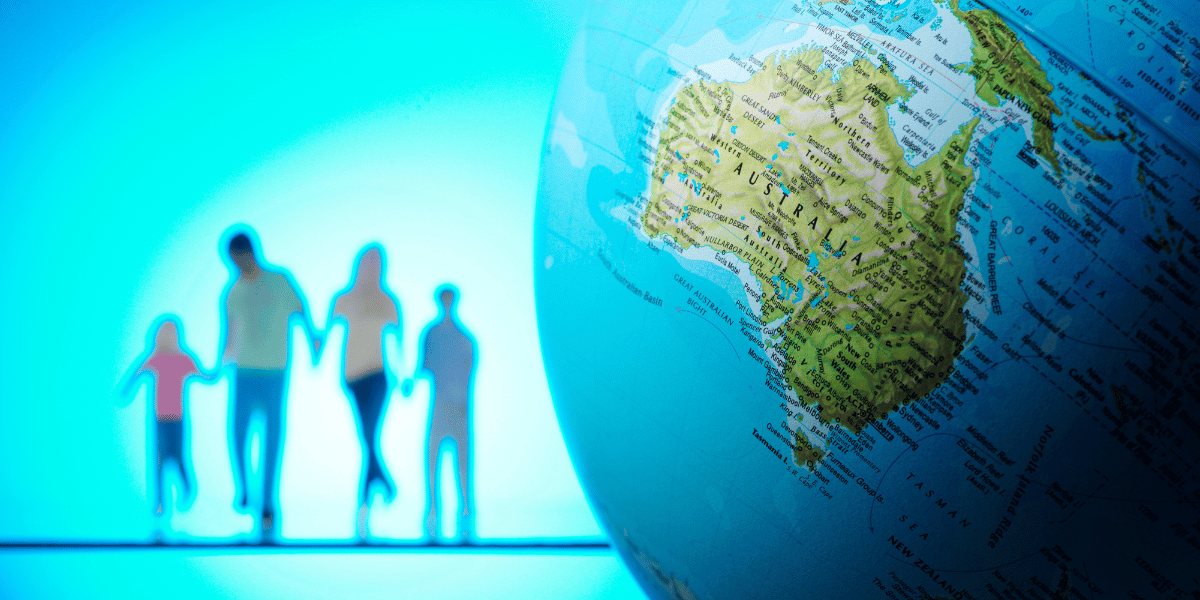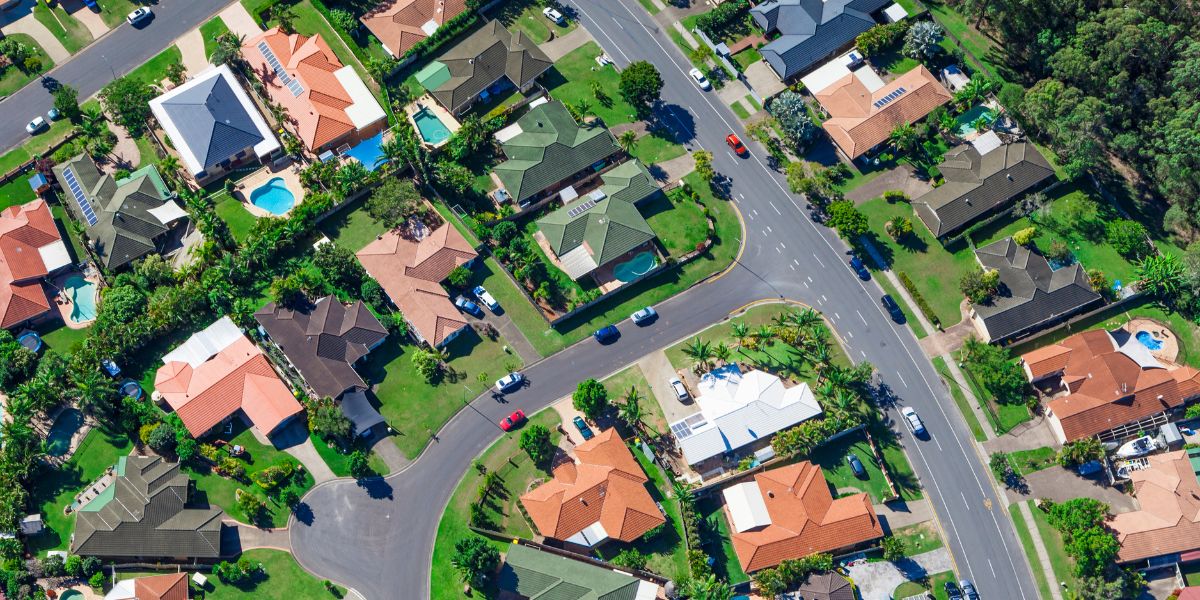13 July 2023
As the current economic system goes largely unchallenged in Australia – with little more than a tweak here and a polish there – there is no shortage of evidence that business as usual is failing too many people.
The usual way politicians talk about the economy is in terms of GDP. In these terms, Australia has done just fine with over two decades of growth (a stark contrast to the GDP recessions experienced by our cousins in the UK and elsewhere). Profits of the big companies in Australia are strong and the low official employment figures suggest that things are ticking along well.
But look beyond the financial pages and you see folks sleeping in tents. One in six of our young people live in poverty. One in four Australians have skipped meals due to inability to afford food, with over half of those recorded as “food insecure” in work – a dire indictment on the labour market if one was needed. One fifth of Australian adults experienced a mental health challenge – especially anxiety – in the previous year.
Perhaps these patterns should not be surprising given the extent to which wealth creation seems to be benefiting those at the top more than the rest. Oxfam, for example, has reported that the richest 1 per cent gained more wealth than the bottom 50 per cent in the last decade.
These socio-economic inequalities are just one side of the coin – the other is the extent to which business as usual is putting grave pressure on the planet. Given the findings of recent IPCC reports, the UN General Secretary has warned that humanity is facing a “Code red” and is in the “last chance saloon”.
And climate change is only one aspect of environmental breakdown: there is also plastic pollution, land use change and the biodiversity loss to contend with.
The prevailing production and consumption systems are pushing the natural world beyond what it can handle.
Expensive, inadequate and individualised responses
There is a hefty price for these problems in that they create damage to people and the planet that governments then respond to. This spending has been termed “failure demand”. For example, 45 per cent of the Victorian budget goes to acute services. Loneliness costs healthcare $2.7 billion a year. In the US, some cities now have more people working in “guard labour” than there are teachers. Ecological economists similarly speak of “defensive expenditure”. Think of the $3 billion earmarked for disaster response payments in the 2022 October budget; or the appointment of “heat officers” in Melbourne; or the $35 billion annual cost to households of extreme weather estimated by 2050.
Beyond such spending, the policy offer is invariably a suite of demands that individuals change. Take more responsibility. Be more resilient. Make better decisions. Make lifestyle changes. The onus of change lands in the lap of individuals: people who have very little control over decisions taken far away, but which affect their life chances and choices.
This relates to an “economic fundamentalism” in which economic growth is deemed – implicitly or explicitly – to be the most important goal. Scientific warnings to stop producing fossil fuels go unheeded because necessary action is deemed harmful to the economy. Goals such as education, health, gender equality and poverty reduction are positioned as being good for the economy.
But is this ostensibly untouchable economy up for the challenges of today?
Ecological economists at the University of Leeds have found that no national economy has managed to deliver for everyone without putting undue pressure on the planet. The conclusion of their research seems to be that twentieth century recipes have landed us in a situation where GDP-rich countries have the resources to provide for all within their borders (in-country inequalities of course show they do not do so) – but, in doing so, breach biophysical boundaries. On the other hand, lower income countries tread lightly on the earth, but are not able to lift their citizens above a social foundation.
These twentieth century recipes are also running out of puff. The diminishing marginal returns to economic growth in terms of social progress show that while GDP growth works when it is “pro-poor” and used to invest in collective institutions, these returns soon tail off.
A wellbeing economy
So, what would be better than this patch and repair economy?
This is where the wellbeing economy comes in. At its most basic, a wellbeing economy is about an economy designed to meet people’s needs while protecting and nurturing the planet.
At its core, it is about relegating the economy to something that is not on a par with – let alone superior to – but in service of social and environmental goals. This speaks to what ecological economists and feminist economists have been saying for decades and what First Nations communities around the world have been living for millennia: that the economy is nested within society – and the two within our natural world.
But how will such an economy be built?
A bit like a thousand-piece jigsaw, a plethora of changes are required: from the local up to the supranational. From changes in tax systems to transport to buildings and business models. They can, however, be loosely clustered into four corners:
- Purpose: what is the purpose of the overall economy and its component parts, including government?
- Prevention: design to get things right first time around, rather than downstream amelioration and repair.
- Predistribution: market outcomes that generate more equality of wealth and income from the outset.
- People powered: ensuring communities are at the fore of decisions that impact them.
The role of government
The role of government is to use its instruments to bolster activities that fit in those four corners and power down those that are misaligned with what people and the planet need.
Some examples include the Welsh Future Generations Commissioner, Sweden’s lower tax on repairs, France’s ban on short haul flights, Italy’s support for worker cooperatives, and Israel’s taxes on earnings inequality. One thing to note about these examples is that they rarely use the term “wellbeing” – what matters is how they reshape economic activities, priorities and behaviours, and in doing so enable collective wellbeing for people and the planet.
The role of enterprises
Enterprises are a vital part of a wellbeing economy. But terms such as “the business community” obscure huge diversity. Some enterprises are, and have potential to be part of, an economy that serves people and the planet – and others do not. A useful definition of the purpose of business is offered by the British Academy: “the purpose of business is to solve the problems of people and the planet profitably, and not profit from causing problems”.
There are plenty of examples of enterprises that this describes – from Jaw Brew and Green City Wholefoods in Glasgow, to Sydney’s Re restaurant. Larger companies are stepping up to the plate – some fulsomely such as Triodos Bank, Faith in Nature’s appointment of a board member to represent nature, and the Scandinavian foundation companies. Others are making bold pledges that sit alongside more traditional profit-led decision-making – such as Microsoft’s pledge to remove “all of the carbon” from the environment that it has emitted since the company was founded in 1975, or Unilever’s commitment to a living wage across its supply chain.
Some hopeful signs
The headwinds against this agenda are strong and often seem overwhelming. But there are hopeful signs that suggest progress is possible, if not on the scale necessary or in the time needed:
- Opinion polls and deliberative democracy exercises (in Australia and globally) show people want an economy that meets their needs.
- Doughnut Economics in cities and community wealth-building show a wellbeing economy being implemented in localities.
- Governments (at least some people in governments) know business as usual is not good enough. In recent weeks there have been major conferences led by governments or parliaments on bringing wellbeing into government (in Iceland) and beyond growth at the European Parliament.
- Environmental, social and governance (ESG) principles and plenty of businesses, such as those mentioned above, show the private sector can be part of positive change.
The challenge will be to not just build more of these good examples that show what is possible – but to align government rules, regulations and incentives with these sorts of activities and agendas. Only then can such examples go beyond being the exceptions that proves the rule, to instead by the new normal that people and the planet need.
Dr Katherine Trebeck is a senior strategic advisor to the Centre for Policy Development and a writer-at-large for the University of Edinburgh. She co-founded the Wellbeing Economy Alliance and instigated the Wellbeing Economy Governments partnership.
This article draws on a keynote address to the Social Impact Summit in July 2023.
Image credit: wragg/Getty Images
Features
Simon Rowell
Teddy Nagaddya, Jenna Condie, Sharlotte Tusasiirwe & Kate Huppatz
Subscribe to The Policymaker
Explore more articles
Teddy Nagaddya, Jenna Condie, Sharlotte Tusasiirwe & Kate Huppatz
Ehsan Noroozinejad Farsangi & Hassan Gholipour Fereidouni
Features
Simon Rowell
Teddy Nagaddya, Jenna Condie, Sharlotte Tusasiirwe & Kate Huppatz
Explore more articles
Teddy Nagaddya, Jenna Condie, Sharlotte Tusasiirwe & Kate Huppatz
Ehsan Noroozinejad Farsangi & Hassan Gholipour Fereidouni
Subscribe to The Policymaker








